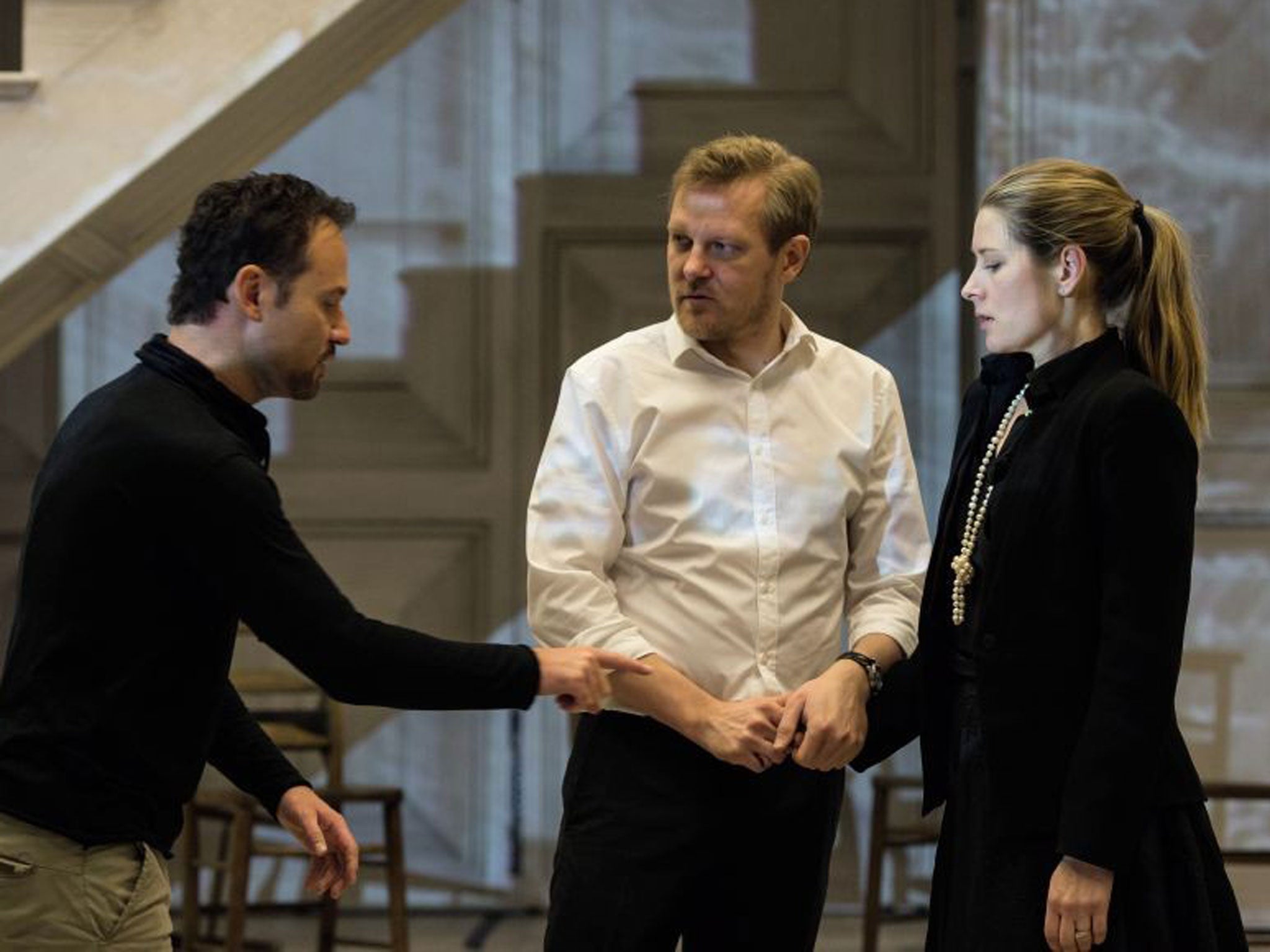The destructive allure of Don Giovanni
As the Royal Opera opens its new Don Giovanni, Jessica Duchen argues that its theme of moral vacuity is as relevant now as in Mozart's day

Your support helps us to tell the story
From reproductive rights to climate change to Big Tech, The Independent is on the ground when the story is developing. Whether it's investigating the financials of Elon Musk's pro-Trump PAC or producing our latest documentary, 'The A Word', which shines a light on the American women fighting for reproductive rights, we know how important it is to parse out the facts from the messaging.
At such a critical moment in US history, we need reporters on the ground. Your donation allows us to keep sending journalists to speak to both sides of the story.
The Independent is trusted by Americans across the entire political spectrum. And unlike many other quality news outlets, we choose not to lock Americans out of our reporting and analysis with paywalls. We believe quality journalism should be available to everyone, paid for by those who can afford it.
Your support makes all the difference.Here is an existential matter to chew on at the opera: why are we women so often attracted to men who are total, utter bastards? That question has been tackled in innumerable books, films and more – classic material for mass-selling bonkbusters, the exploits of James Bond and, of course, Fifty Shades of Grey.
But the man who seduces, rapes or maltreats the women in his life – and he is usually powerful and rich– is not just a mythic archetype. He is all too real and he is here with us right here, right now. Politicians, pop stars, footballers, a president or two, even the occasional conductor – it seems they're at it left, right and centre.
As the Royal Opera House prepares to unveil a new staging of Mozart's darkest opera, Don Giovanni, its serial-seducer antihero seems almost ridiculously relevant. The fast-living aristocrat rapes Donna Anna, emotionally tortures Donna Elvira and seduces the peasant girl Zerlina on her wedding day – all this within 24 hours. His undoing begins when he is challenged by the Commendatore, Anna's father, and kills him.
The Don is sung in Kasper Holten's new production by the Polish baritone Mariusz Kwiecien. "A character like Don Giovanni could exist in every era – 500 years ago, 200 years ago, now and in the future," he says. "A certain number of people always become addicted to money, drugs, fame, partying, all these crazy things, and just lose themselves in this kind of behaviour."
That life is fatal for Don Giovanni – and it rings true: "Think of Michael Jackson, Whitney Houston, Amy Winehouse," adds Kwiecien. "It's the people who are not strong enough to say no, enough, let's stay on the brighter side of this world. The darkness always seduces people, and if you have money, power and fame it's easier to let it."
Finally, Giovanni gets a grisly comeuppance: he must face retribution from the ghost of the man he murdered in scene one. He seems to deserve his fate – yet one rarely leaves the theatre without a frisson of sympathy for the dead and damned Don. That sympathy can still be perplexing. Why on earth do we care about this man?
Perhaps the key is the opera's edgy libretto by Lorenzo Da Ponte – who some say took advice about the Don's character from Casanova himself. It allowed Mozart to create a cast of thoroughly believable individuals, none of whom is all good or all bad. For instance, the sheer chutzpah of Giovanni's twisted logic can prove oddly irresistible as he explains to his sidekick, Leporello, that to be faithful to one woman would mean being unfaithful to all the others. He also sings one of the most gorgeous arias ever given to an operatic baritone, a serenade addressed to the unfortunate Donna Elvira's maid.
Gerald Finley is one of today's most sought-after Giovannis. "I think we're always fascinated by people who are doing extraordinary things, perhaps beyond our own moral range," he comments, "and in seeing perhaps things that only feature in our dreams sometimes playing out in other people's lives. And to see this character incarnated on stage, put together by Da Ponte and Mozart, combines all those issues."
The darkness wins as the Commendatore drags Giovanni away to hell. But Kwiecien takes a pragmatic view of why we still can't help loving that man. "Good is boring," he says. "Bad is much more interesting."
'Don Giovanni', Royal Opera House, London WC2 (020 7304 4000) 1 to 24 February
Join our commenting forum
Join thought-provoking conversations, follow other Independent readers and see their replies
Comments